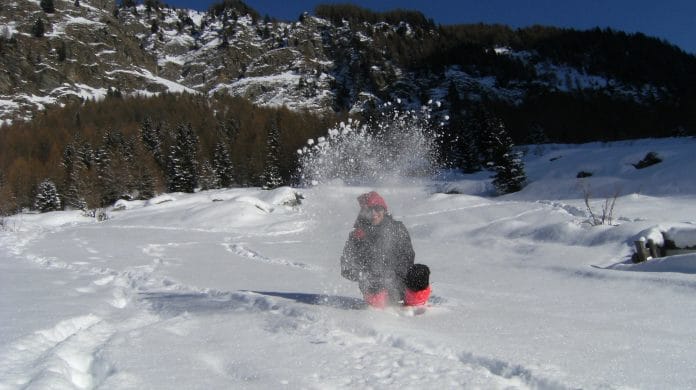As the saying goes, money can’t buy happiness. That certainly seems to be true in 2020 — rates of depression and anxiety are up, even though many households have more cash on hand than usual. Savings rates in the U.S. spiked to a previously unfathomable 34% in April and sat at a still-high 14% in September. Savings in the U.K. have also hit record highs, with households saving 29% of their disposable income.
There must be some way to use this extra cash to brighten our spirits. Even if gyms, cafes, hotels and restaurants aren’t safe. Even if travel is restricted. Even if the best things in life are free. After all, in a pandemic, those free activities — like visiting a house of worship or game nights and dinner parties — can be deadly.
To find out whether it’s realistic to throw money at the problem of Covid-induced unhappiness, I called Elizabeth Dunn, a psychology professor at the University of British Columbia and a coauthor of “Happy Money: The Science of Happier Spending.”
One area she says is definitely worth the money: exercise. Physical activity is really good for our emotional well-being; it can be just as effective as medication in treating depression, studies have found, even if it’s just 30 minutes of walking three times a week.
And, bereft of other distractions, lots of us did get more exercise over the summer — cycling, running, even inline skating. But winter’s arrival may make moving around more expensive. One does not need to splurge on a Peloton (although many have — in September, the company reported quarterly sales had soared 172%). To prepare for indoor winter workouts, I bought a used bike trainer on Facebook Marketplace and a pair of weights from Amazon for a total of about $200. Bodyweight classes, yoga and Pilates don’t take much, if any, special equipment, and can be found free on Instagram or YouTube, or for a small monthly fee through apps like MindBody.
But don’t give up on going outside, says Dunn. A raft of studies have linked spending time in nature to better mental health. And, of course, Covid transmission rates are far lower outdoors, making it possible to socialize relatively safely as long as you stay outside.
As the days and nights get colder in the Northern Hemisphere, it may be necessary to get creative to remain in nature, and this introduces a new category of things to buy: stuff to keep us warm. Think beyond firepits and patio heaters, which at this point may be available only on backorder. A wool base layer? A down sleeping bag? Those chemical hand-and-toe warmers you bring skiing? Some outdoor gear companies even make battery-heated jackets. I’ve been staying warm(ish) while socializing outdoors by keeping a travel mug of scalding herbal tea at my side.
Another way to invest in happiness is to buy experiences. We’re happier buying experiences than material goods, several studies have suggested. Indeed, pre-pandemic, it was hard to go a week without reading about the “experience economy” or millennials’ commitment to buying memories rather than stuff. It’s just that buying things to do has gotten a lot harder.
“It’s still possible to buy experiences, but they might look a little bit different,” Dunn says. “We don’t usually think of buying takeout as an experience, but on Saturday nights I’ve been ordering takeout from the kind of fancy restaurant I would normally be going out to for date night.” It makes the day feel special, and it’s something to look forward to all week.
And indeed, she says, “part of the reason experiences are powerful is anticipation.” Sometimes looking forward to something is more pleasurable than the experience itself. That’s why Dunn and a friend are planning a trip to a dude ranch in the summer of 2021. “We could probably wait to start planning this trip,” she admits, but filling out their shared Google doc is giving them something fun to do now.
Another way to buy an experience is to buy more free time. People feel much happier when they outsource tasks they find unpleasant, Dunn’s research shows, but guilt often stops us from doing this. After all, it’s work we could be doing ourselves. Nonetheless, she says, if you hate cooking — or are just getting sick of having to do it day after day after day — go ahead and buy some ready-made meals. If you’d rather not do the snow shoveling, hire someone to plow the driveway. You’ll also be supporting local businesspeople.
The last and best way to buy happiness: Help others. A tranche of Dunn’s research focuses on what academics call “prosocial spending” and its powerful effects.
Charitable donations bring us joy; we feel even better when we can see the tangible effects of our giving. So make a donation to your local food pantry, or send a DoorDash order to a friend going through a hard time. Deliver a homemade dinner to a lonely relative, even if you have to leave it on their porch.
“Given how many people are suffering right now, those of us lucky enough to have full-time, paying jobs might consider using our money to help other people out,” Dunn says. “My research has shown that’s a really good way to buy happiness for ourselves.”
How do you gauge how much generosity is enough? An old rule of thumb: Give until you feel good.- Bloomberg
Also read: England offers travellers shortened quarantine with Covid tests ahead of holiday season






